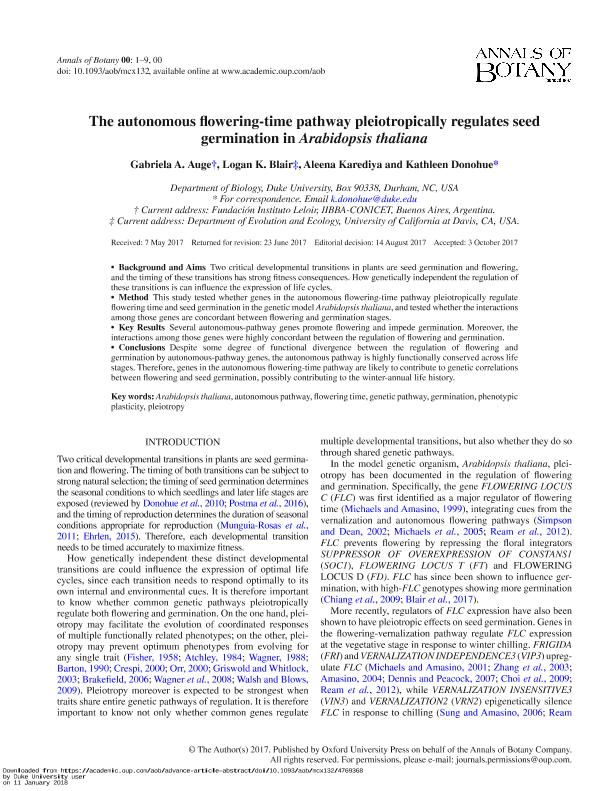Artículo
The autonomous flowering-time pathway pleiotropically regulates seed germination in Arabidopsis thaliana
Fecha de publicación:
01/2018
Editorial:
Oxford University Press
Revista:
Annals of Botany
ISSN:
0305-7364
Idioma:
Inglés
Tipo de recurso:
Artículo publicado
Clasificación temática:
Resumen
Background and Aims Two critical developmental transitions in plants are seed germination and flowering, and the timing of these transitions has strong fitness consequences. How genetically independent the regulation of these transitions is can influence the expression of life cycles. Method This study tested whether genes in the autonomous flowering-time pathway pleiotropically regulate flowering time and seed germination in the genetic model Arabidopsis thaliana, and tested whether the interactions among those genes are concordant between flowering and germination stages. Key Results Several autonomous-pathway genes promote flowering and impede germination. Moreover, the interactions among those genes were highly concordant between the regulation of flowering and germination. Conclusions Despite some degree of functional divergence between the regulation of flowering and germination by autonomous-pathway genes, the autonomous pathway is highly functionally conserved across life stages. Therefore, genes in the autonomous flowering-time pathway are likely to contribute to genetic correlations between flowering and seed germination, possibly contributing to the winter-annual life history.
Archivos asociados
Licencia
Identificadores
Colecciones
Articulos(IIBBA)
Articulos de INST.DE INVEST.BIOQUIMICAS DE BS.AS(I)
Articulos de INST.DE INVEST.BIOQUIMICAS DE BS.AS(I)
Citación
Auge, Gabriela Alejandra; Blair, Logan K.; Karediya, Aleena; Donohue, Kathleen; The autonomous flowering-time pathway pleiotropically regulates seed germination in Arabidopsis thaliana; Oxford University Press; Annals of Botany; 121; 1; 1-2018; 183-191
Compartir
Altmétricas




